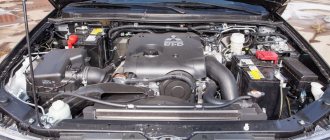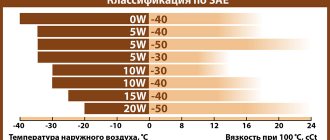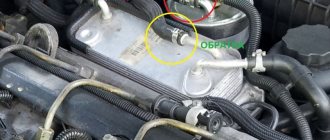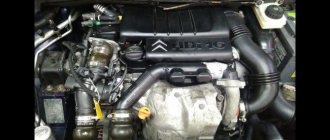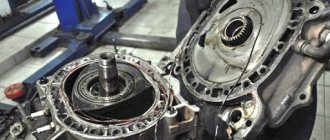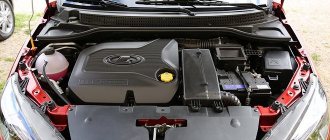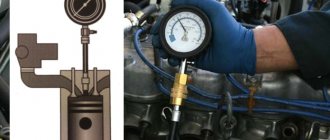An important criterion when choosing a car is its equipment, special attention is paid to the capabilities and characteristics of the engine. Solving the dilemma of which engine is the best is not easy, since there is a desire not only to give preference to the best, but also to save money. Those who have had the opportunity to experience both types first-hand know that they differ from each other both in their work and in the way they care. Therefore, the success of the choice will depend not only on a comparison of their strengths and weaknesses, conditions of use, but also personal preferences. Today, for adherents of both varieties, manufacturers equip the same car models with both gasoline and diesel engines so that there is a choice. They are considered internal combustion engines (ICE), which were discovered in 1860 by the Frenchman Etienne Lenoir. The whole point of how an internal combustion engine works is that the fuel consumed is burned internally, and later the engine converts the generated heat into mechanical energy.
Comparison of diesel engine and gasoline
Differences and operating characteristics of devices
Let's look at how a diesel engine differs from a gasoline engine in terms of operating features. The designs of both are similar, both have pistons, connecting rods and cylinders. Also common elements are: lubricants, gas distribution, cooling system, power supply and crank mechanism. The diesel engine contains reinforced valves, crankshaft, block and cylinder heads, therefore it is larger in size and weight. Significant dimensions imply the perception of large loads.
In addition, the pistons have an additional compression ring inside the cylinder. Since it is more complex, its price is higher. The main difference between both engines is their fuel. From the name it is easy to understand which of them consumes what. Interestingly, diesel fuel is less flammable than gasoline, which is a plus for safety. The difference between a gasoline engine and a diesel engine is also in the location of the combustion chamber. For a diesel engine it is located at the bottom of the piston, and for a gasoline engine it is in the cylinder head.
As for the formation of the fuel-air mixture, this process proceeds differently for them, and this directly affects their service. In a diesel engine, the air that penetrates into the cylinder heats up during the upward movement of the piston, the temperature can rise to 900 degrees, this happens because the air volume decreases and the pressure increases, sometimes up to 5 MPa. Next, fuel enters through the nozzles at a pressure of 1500 kgf/cm² and ignition immediately occurs from hot air. After which expansion occurs, so pressure increases in the cylinder. This makes a lot of noise during operation and when burned, diesel engines will emit toxic exhausts characterized by an unpleasant odor.
Diesel engine
However, more complete models have begun to appear, but although they have undergone significant modernization in sound isolation over the past decade, they still lag behind their gasoline counterparts. If you run the engine at idle, the sounds are clearly audible, but if you take a gasoline engine, it is generally unclear whether it is running or not. The rumble of diesel engines disappears only when normal speed is reached. But with regard to allocations, no changes are visible. No matter how hard diesel companies try to reduce its sulfur content, the fuel still emits nitrogen oxide (NOx) and particulate matter with an unpleasant odor.
The principle of operation of a gasoline engine
Let's get ahead of ourselves: it's the spark plug.
It is installed in gasoline engines, but not in diesel engines. The former run on gasoline, the latter on diesel fuel. Gas engine. It forms the air-fuel mixture after the main compression stroke. The VTS completely occupies a single cylinder. The temperature inside it rarely exceeds 510-520 degrees Celsius. The compression ratio is usually less than 10, often 9. Devices with a compression ratio of 11 are rare. Due to the relatively low temperature of the air-fuel mixture, a spark plug must be installed to ignite it.
A similar example is a four-stroke naturally aspirated engine with a conventional fuel injection system.
Gasoline engine operation diagram
- Intake - the prepared fuel-air mixture enters the combustion chamber through an open valve. The piston moves towards the EMT, creating a vacuum. Once filled, the inlet valve closes and the chamber becomes sealed.
- Compression - the piston moves upward, compressing the prepared mixture. When it reaches top dead center (TDC), the spark plug fires and the fuel mixture ignites.
- Under the pressure of the combustion gases, the piston rushes to BDC, transmitting torque to the crankshaft. The valves remain closed.
- Exhaust - the piston moves upward, at the same time the exhaust valve opens. Exhaust gases rush out, making room for the fuel mixture.
The general operating principle is the same - ignite the fuel mixture in a limited sealed volume. However, due to the differences between diesel fuel and gasoline, from the point of view of thermodynamics we get a completely different picture.
The combustion temperature of gasoline is higher, and more energy is released. But it is distributed more evenly. Therefore, torque is lost, but horsepower is gained.
Maintenance of diesel and gasoline engines
By design, diesel is much stronger and its service life is much longer. However, there is a problem in terms of fuel, since Russian diesel is not the best in quality, which can spoil the operation of the engine. Using average quality fuel leads to frequent replacement of filters and oil. If the motor breaks down, its repair will be expensive, since the internal structure is more complex. As for the gasoline one, it is more powerful, and in terms of fuel it is “omnivorous”. Spare parts for this type of motor are readily available.
In winter
Naturally, in winter, a diesel engine can also fail. So, at certain low temperature conditions, fuel such as diesel fuel changes its consistency and becomes thicker, as a result of which there is a high probability that the car will most likely stall.
But this happens more often with old cars, while new ones provide for a temperature drop and this in no way negatively affects the fuel itself. The same thing happens with gasoline engines, which in principle are not much different from diesel engines.
Power, performance and torque
Diesel engines have more torque, but gasoline engines have more horsepower. When acceleration is required and load capacity is not important, a gasoline engine is suitable. Due to its simple design, it can reach much higher peak speeds, and this makes it possible to obtain more horsepower, and then achieve acceleration to 100 km/h faster than diesel engines. But if brute traction force and the weight of the towed load are important, a diesel engine is more suitable. Thanks to its torque, the diesel engine can easily pull loads on steep slopes. The engine shows its torque at low speeds.
A modernized diesel engine has been installed
A diesel unit is a more budget option, unlike a gasoline one, since the efficiency level can reach 50% , and this is a significant fuel saving. Today, many European vehicles have a Common Rail fuel system, which displays data on the time and amount of fuel supplied to the touch control panel. This happens due to installed sensors. The system carries out calculations with maximum approximation to the milligram. The principle of such dosing helps to smoothly increase the pressure, which makes the engine run smoothly when changing gears. This system reduces fuel use by 20% and increases torque by 25%. For this reason, the efficiency of diesel devices is 40% greater than that of analogues.
What is more economical: diesel or gasoline?
The low quality of diesel fuel in Russia is a myth. The possibility of refueling with second-rate gasoline or diesel is equally likely, and this happens most often due to the choice of bad gas stations. In addition, calls for service to official dealers of diesel cars with internal combustion engine failure due to low quality diesel fuel are very rare. Therefore, it is quite difficult to determine which is more profitable - diesel or gasoline, based on this criterion.
The situation is different with the rate of wear of engine elements. Engines running on diesel fuel last longer, because the crankshaft and parts of the cylinder-piston group in gasoline internal combustion engines fail faster, requiring replacement. In addition, diesel acts as a lubricant during combustion. Therefore, in the question of which is more economical, diesel or gasoline, the former definitely wins.
We invite you to familiarize yourself with Making an electric boiler with your own hands
However, today prices change regularly, so we recommend that you familiarize yourself with the current prices for diesel fuel in Russia.
Short and long term services
The difference between a diesel engine and a gasoline engine also lies in the frequency of maintenance. Frequent diesel maintenance is expensive, although filters and gaskets should be changed regularly. When it comes to changing engine oil, antifreeze and spark plugs, the diesel engine has an advantage here. The cost of a diesel engine is easily recouped due to its long service life. It lasts three times longer than its counterpart. The engine needs to operate for around 200 thousand km before it requires a major overhaul.
Design of the engine power supply system YuMZ, D-65
Background of the issue
Experienced car enthusiasts remember well how the number of diesel cars sharply increased in the mid and late 90s. The stereotype that diesel engines were installed only on “industrial” equipment was destroyed.
Today, automakers offer us a variety of diesel engines. FAVORIT MOTORS Group of Companies, one of the largest dealers in Moscow, is engaged in the sale and service of both gasoline and diesel cars. This gives everyone the opportunity to choose an option to suit their taste.
Difference in Performance
No less significant indicators are: fuel consumption and compression ratio. Fuel consumption is an indicator of efficiency. It shows how much fuel is consumed at a power of 1 kW. in an hour. Diesel vehicles consume 200 to 230 g , and gasoline ones consume 265–305 g . Diesel devices never stall at low speeds; this very often happens with their counterparts when thrust at low speeds is reduced. The second indicator tells how many times the mixture in the cylinder is compressed during operation. Diesel engines have a compression ratio of 13–25 units , but gasoline engines rarely exceed 12 units.
What is better diesel or gasoline? Comparison criteria
The following parameters were selected as the main parameters in order to understand which engine is better: diesel or gasoline:
- power;
- fuel consumption and consumption;
- durability (resource);
- fuel quality;
- environmental cleanliness;
- safety for humans;
- operating volume;
- specifics of service;
- operation in winter;
- cost of maintenance and service work;
- engine repair.
We suggest you familiarize yourself with How to quickly and effectively clean a chimney in a private house
Now - specifically for each criterion.
Pros and cons, summarize and compare
Let's start with the advantages of a gasoline engine:
- the price for spare parts is affordable;
- resistant to bad fuel;
- does not make noise;
- works properly in sub-zero weather;
- high power;
- It’s easy to get parts and carry out repairs at any service center.
Gasoline engine diagram
Advantages of a diesel engine:
- the price is reasonable;
- no ignition system;
- there is less carbon monoxide in the exhaust;
- not as flammable as gasoline;
- fuel performs dual functions as fuel and lubricant;
- diesel consumption is low;
- good off-road;
- not afraid of dirt and moisture;
- high efficiency;
- has high traction forces at low speeds.
Let's go over the disadvantages of a gasoline engine:
- explosive fuel is consumed;
- does not work for long;
- releases fumes;
- high fuel consumption;
- breaks much more often.
Cons of a diesel engine:
- high quality fuel is required;
- low power;
- not all services undertake to service diesel engines;
- massive engine dimensions;
- the price for repairs is high;
- noise accompaniment;
- In winter, if you do not take into account the advice on use, a snag may occur when starting. Only high-quality fuel ensures engine operation even at –55 0C;
- Sometimes it doesn't handle high speeds and high revs.
Turbocharged diesel engine
What conclusion can be drawn?
Diesel and gasoline units are good in their own ways. A gasoline engine can function quite well at high speeds, but wears out faster, and a diesel engine uses less oil because diesel fuel functions well as a lubricant. These two types of engines are endowed with their own special quality characteristics, inherent only in products of their category, so it is best to compare gasoline engines with similar units. The same applies to diesel units.
Comparison of cost of 1 km of track
If we consider the differences between diesel and gasoline, then in urban conditions it has an average of 5.8 liters/100 km , but gasoline is 9.2 liters/100 km . That is, a diesel vehicle consumes 0.058 liters , and 0.092 liters per . To calculate how much one kilometer of travel will cost, we take the cost of fuel and multiply by the coefficients we have given - 0.058 for diesel and 0.092 for gasoline. We get prices and compare. It turns out that diesel is more economical.
Which is better: diesel or gasoline? Car noise
A diesel engine is noisier than its gasoline counterpart. This is due to the weight of the structure and the strong pressure difference before and after ignition. Engine noise is a problem for budget cars; took care of the car owner and passengers by installing high-quality sound insulation.
For some users, “more powerful” means louder. They deliberately buy noisy diesel engines to attract attention. But what is better for an SUV - gasoline or diesel? Of course, a motor running on diesel fuel. This is especially true for vehicles operated with heavy loads or off-road - only with a diesel engine can they meet the car owner’s expectations.
What is the difference between diesel and gasoline? What other benefits are there?
Some hidden benefits are below:
- when immersed in water, the diesel engine will work, but the wiring of a gasoline internal combustion engine will short-circuit (that is, if the car drowns, the risk of reviving the vehicle on diesel fuel is higher);
- the most expensive consumable is the previously mentioned injection pump, however, its service life exceeds 100 thousand km;
- transport tax is lower for a car running on diesel fuel, because with the same volume (with a gasoline vehicle) it will not be more powerful;
- in the absence of heaters, life-giving warmth will appear in the cabin only after a few kilometers of travel, and if idle in a traffic jam, the vehicle will cool down again.
What is more profitable - diesel or gasoline? In the long term - the first, but only for those who can afford expensive maintenance. From the point of view of regular expenses, the second one is preferable
The pros and cons of diesel or gasoline are equally significant. Before purchasing, the car owner should analyze the cars in question according to the criteria listed above, read the reviews of experienced drivers and make a decision taking into account the purposes of operation and financial capabilities.
Diesel vs gasoline – which is better in winter?
No matter how much they scold the domestic gasoline-powered auto industry, even it looks more attractive than luxury diesel cars. For the latter, at -15..-20 degrees, the diesel fuel turns into a gel-like state, and it becomes difficult to start the engine. The car owner is forced to switch to a winter fuel option, use a heating system (for example, a Webasto pre-heater found on special equipment) or use expensive oils with additives that still need to be selected correctly.
Diesel vs gasoline - which is better in winter? Definitely gasoline. Its operation in the cold season is more reliable, cheaper, and causes less trouble.
